Dyslexic learners thrive when they receive tailored support from their teachers and parents. No two students learn in exactly the same way, and dyslexic students have unique educational experiences that require different types of instruction. Although students with dyslexia may struggle with executive functioning and essential reading skills, encouraging them to take advantage of helpful accommodations can give dyslexic learners the skills they need to achieve great things.
All posts tagged: Dyslexia in the Classroom
Defining Dyslexia and Dysgraphia
Students with dyslexia and dysgraphia face unique academic challenges that they can overcome with the right attention from parents and teachers. The first step to helping students with dyslexia or dysgraphia learn successfully is understanding the differences between these conditions. Parents and educators who recognize the distinctions between these learning differences can provide students with the appropriate attention and care. When students receive the appropriate interventions for their learning needs, their potential is limitless! Read below to learn more about the differences and challenges of dyslexia and dysgraphia and how parents and teachers can help.
Why Do Executive Functioning Skills Matter?
There is no limit to the skills and knowledge that students can master throughout their time in school. From learning how to study to practicing relevant skills for a specific subject, teachers and students have a lot to learn together! Students with learning differences like dyslexia may need additional help with a beneficial set of skills known as executive function. Executive functioning skills include essential mental abilities like working memory, flexible thinking, and self-control that can significantly impact how students can succeed in school and beyond. Read below to learn more about executive functioning skills and why they matter.
5 Takeaways from Our Webinar – Dyslexia: The Neuroscience of Early Identification and Intervention
Webinars consistently offer excellent opportunities to dive deeper into a variety of different subjects, especially in the world of education. The Schenck School partnered with ReadSource, IDA-GA, BrainLENS, Literacy How, and The Georgia Department of Education to present an overview about the neuroscience of dyslexia and how early identification and intervention have a positive impact. Dr. Fumiko Hoeft and Dr. Margie Gillis presented recent findings in education, psychology, neuroscience, and genetics to support this conclusion. Watch the webinar in its entirety here or read below to learn about five key takeaways from the presentation!
IEP vs. 504 – What’s the Difference?
To ensure students with learning differences get the precise help they need, parents and teachers must understand what accommodations or interventions are available. Two options that include common classroom accommodations used for students with learning differences are the individualized education plan and the 504 plan. While these educational plans can be helpful for certain students, they cannot be used interchangeably. Read below to learn more about the differences between an IEP and a 504 plan with help from ReadSource.
Tips to Help Parents and Teachers Identify Dyslexia
Parents and teachers are always looking out for the best interest of their students. And with the prevalence of dyslexia and other reading struggles, parents and teachers play a significant role in recognizing some of the early signs of dyslexia. Ideally, prerequisite reading skills are taught during preschool and any irregularity in these skills can be addressed. However, when students enter elementary school, language or reading deficiencies that may have gone unnoticed in preschool become more recognizable if adults know what to look for. Whether in the classroom or at home, teachers and parents who are able to identify signs of dyslexia ensure these children get the interventions they need to read successfully. Read below to learn about tips that help parents and teachers identify dyslexia.
Advocating for a Dyslexic Student Through Online and In-Person Learning
Regardless of the learning environment, advocacy is an essential component of educating students with learning differences. Dyslexic students and their parents often need to understand and express their unique educational requirements to ensure they get the best support. And although advocacy is important, it is not always easy! Parents of students with learning differences may feel intimidated or uncomfortable when advocating for their child, but they are setting an excellent example for all children to be vocal about what they need to succeed in and out of the classroom. Read below to learn more about advocating for a dyslexic student through online and in-person learning.
Tips and Tricks for Using the Dyslexia Font and Other Assistive Technologies
With technological advances and an increased awareness of dyslexia, new assistive technologies are opening doors for dyslexic individuals in and out of the classroom. Advances in technology like intentionally designed fonts and state-of-the-art software programs allow students to overcome the challenges of dyslexia and learn more independently. However, accessibility and awareness of available technologies may still be an issue in some communities. ReadSource breaks down some of the most helpful assistive technologies for dyslexia and includes tips and tricks so each dyslexic student can make the most of the tools available to them.
What is a Dyslexia Specialist?
In the educational system, numerous individuals work to help students behind the scenes and in the classroom. And while teachers and administrators do amazing work to help students with learning differences, there are times when a student with dyslexia needs specialized support to succeed. In some educational settings, a dyslexia specialist can offer the expertise required to help teachers identify undiagnosed dyslexic students and/or provide the targeted interventions those students need. Specialized education can help students with learning differences access helpful tools in school, and a dyslexia specialist can be an important part of the team that makes success possible. Read below to learn more about what a dyslexia specialist does and why it matters with ReadSource.
Tips to Help Dyslexic Students Prepare for the New School Year
The summer is a time to relax and recharge. However, parents of dyslexic students may find concerns about how their child will perform after a few months out of the classroom. Don’t worry, that’s totally normal! With just a few proactive steps, parents and kids can enjoy their free time over the summer, while also getting ready for everything that comes with a new school year. Follow these tips to help your dyslexic student get a head start before schools start back in the fall.
















